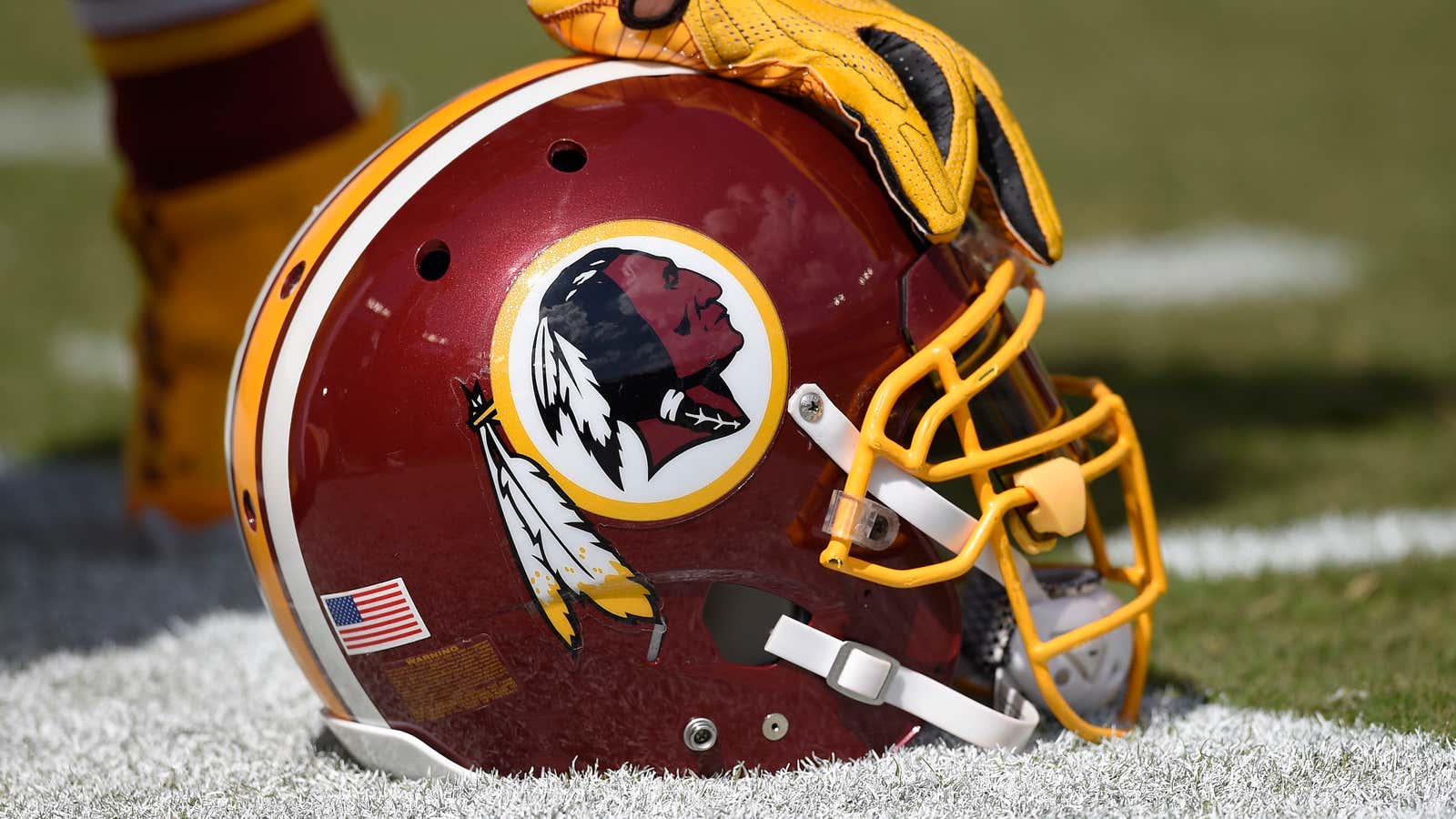Critics of the Washington Redskins’ team name are finally getting their day in court. Kind of.
On Thursday (Sep. 29), the Supreme Court of the United States announced that it would review a federal law barring the registration of offensive trademarks—specifically, whether it violates free speech under the First Amendment of the Constitution.
But the offensive trademark in question doesn’t belong to Washington Redskins owner Daniel Snyder. Instead, it emerges from a lawsuit filed by Simon Shiao Tam, frontman of a Portland, Oregon-based Asian-American rock band called The Slants.
Tam was denied a registered trademark by the US Office of Patent and Trademark (PTO) in 2011 because office insists the name—referring to the outer eye shape, or presence of epicanthic folds, exhibited by individuals of East Asian descent—would offend Asian Americans.
In granting Tam registered trademark, the PTO argued it would be in violation the 1946 Lanham Trademark Act, which prohibits registration of trademarks “disparaging” to persons.
Tam says that the band’s name is intended as a kind of reclamation, an attempt to neutralize and rebrand the slur as “a badge of pride.”
Though Tam lost and appealed in the first rounds of trial, a majority of the US Court of Appeals for the Federal Circuit ruled the Lanham Act unconstitutional under the First Amendment, which protects freedom of speech. “Simon Tam is not a bigot,” Tam’s attorney, John C. Connell, wrote in Tam’s petition to the Supreme Court. “He is fighting bigotry with the time-honored technique of seizing the bigots’ own language.” He cites the abbreviated n-word used by the American hip-hop group NWA as support.
Arguments for Michelle K. Lee v. Simon Shiao Tam will be heard later in the Supreme Court’s 2016-17 term. But a victory for Tam could have legal reverberations that actually empower a bigot or two.
The Washington Redskins had their trademark canceled in 2014 when it was deemed offensive to Native Americans. The team asked a district judge in Virginia to overturn the cancellation, but that request was denied, and the case now awaits hearing on appeal in the US Court of Appeals for the 4th Circuit in Richmond.
The government’s reasoning for denying Tam’s trademark and canceling that of the Redskins is that it should not appear to extend legal protection—and implicit endorsement—to words or symbols that might offend American citizens. And it contends that this does not constitute a violation of free speech under the First Amendment because both the band and the team remain free to call themselves whatever they like and sue infringers in state courts, regardless of whether federal courts move in their favor. But registered trademark (® vs. TM) entitles parties to exercise more definitive legal claim over marks against commercial copycats. Both the team and the band would be better equipped with registered trademark to recover lost revenue from someone selling t-shirts silkscreened with the Redskins or Slants logo, for example.
For the Redskins, registered trademark would entail broader protections for its expansive team merchandise enterprise, and potentially higher revenues for a franchise seen to be profiting from the perpetuation of a racist stereotype. For Tam, it means vindication of his and the band’s First Amendment rights, and the fruition of a smaller, albeit nobly minded project in subverting racist messaging.
Tam’s representation argues that, while the government’s mission of discouraging hateful speech might be admirable, its methods for evaluating the ostensible offensiveness of a mark are vague and often arbitrary. “The PTO denied registration to Have You Heard Satan is a Republican ‘because it disparaged the Republican Party,’” Connell explained, but it ruled The Devil Is a Democrat was not sufficiently disparaging to be deprived of federal protection.
In a sense, the court is presented with two paths, each aimed at expunging hateful speech to varying degrees. One calls for more broadly effective, yet sometimes arbitrarily restrictive policing from the federal level downward. The other, more narrow, empowers individuals to deprive traditionally disparaging words and symbols of their offense, ameliorating the national vocabulary from the bottom up.
Who would have thought that such profound questions of social policy would play out in t-shirt stands?
